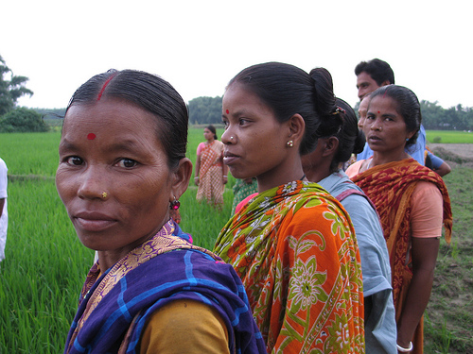
Hundreds of women in a remote village named ‘Uttar Medakocchopia’ in Chakaria Upazila of coastal district Cox's Bazar showed how they can generate alternative income without depending on forests.
Through their products – hand-knitted beautiful toys - the struggling women brought smiles to their families and connected cities across the world as their products are reaching over 31 countries putting smiles on faces worldwide.
Hathay Bunano with a brand name PebbleChild, provided necessary training to around 400 women in the village who later trained another 300 women equipping them with the expertise for creating beautiful toys.
“Now I earn around Tk 5,000 per month. I can make at least four toys a day even after investing my time household works,” Rokeya, a 17-year-old woman, told UNB. She said her family members used to depend on forest and they are no more going to forest to cut small trees leading to deforestation. “I got trained two years back and I trained others. We’re getting raw materials free of cost. So, I’m happy to get the price of labour,” said Rokeya who looks very confident.
Sharmin Akhter, a 15-year-old girl, is one of the beneficiaries, who used to go to forest to collect small trees. “Now I understand it’s not wise to cut small trees. This is our forest. We should not destroy it,” she said mentioning that she is now earning around Tk 4000 to Tk 5000 per month.
Shahin Akhter, a 19-year-old married woman from the same village, said her husband works in a salt field and he used to depend on forest for an extra income to meet family requirement.
Pebble has been working in partnership with the USAID's CREL (Climate Resilient Ecosystems and Livelihoods CREL) project and Winrock International to connect poor and forest resource-dependent people with the private sector by teaching women in these very remote areas to knit, so that they no longer need to go to the forests and deplete the natural resources for their livelihoods.
“It’s a unique approach. It’s a sustainable model. Even after the expiry of the project, these women will continue to benefit by remaining engaged with Pebble,” Obaidul Fattah Tanvir, a senior official of the CREL project, told UNB.
He said Hathay Bunano or Pebble is taking the toys to 31 countries after buying back the products from the women in the village.
“We’ve created the linkage between the company and women. We also helped identify the beneficiaries and provide them with required trainings,” Tanvir said adding that they are working on conservation involving the community.
Another official said people at Uttar Medakocchopia village are heavily dependent on forest and it is essential to give them something which is more profitable than forest dependency. “It’s good to see that these women are not going to forest now. They have their alternative income,” Tavir said.
“When you purchase a Pebble product, you’re helping poor women in Bangladesh support their families and keep them together,” said another official.
Hathay Bunano aims to provide employment which fits in with the rhythm of rural life, stems the tide of economic migration to the cities and keeps families together.
Posted on :
Apr 19, 2017